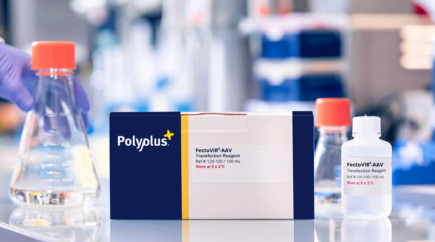Available at research and GMP grade to intensify production of recombinant AAV rAAV viral vectors at any scale from benchtop to 2000L scale bioreactor...

Presentation by Mathieu Porte R&D Manager, BioProduction & Malik Hellal, PhD, Senior Scientist, Chemistry. Webinar hosted by Bioinsight.
The number of ATMP therapeutic-based medicines for inherited genetic disorders is in constant growth, with a global 32% increase in new clinical trials in the last 4 years. ATMPs have demonstrated their success with already more than ten approved for commercialization.
The success of AAV as the most promising viral vector for gene therapy is due to low immunogenicity, broad tropism and non-integrating properties. One major challenge for translation of promising research to clinical development is the manufacture of sufficient quantities of AAV. Transient transfection of suspension cells is the most commonly used production platform, as it offers significant flexibility for cell and gene therapy development. However, this method shows some limitations in large scale bioreactors: inadequate transfection protocol, reduced transfection efficiency and lower productivity.
To address this concern, we present data on the novel transfection reagent showing: i) increased AAV titers, ii) improved transfection protocol for large scale bioreactors and iii) reproducibility of viral titers at different production scale. The aforementioned optimized parameters make this novel transfection reagent ideal for cell and gene therapy developers by combining the flexibility of transient transfection with scalability and speed to market.
Attendees will learn: